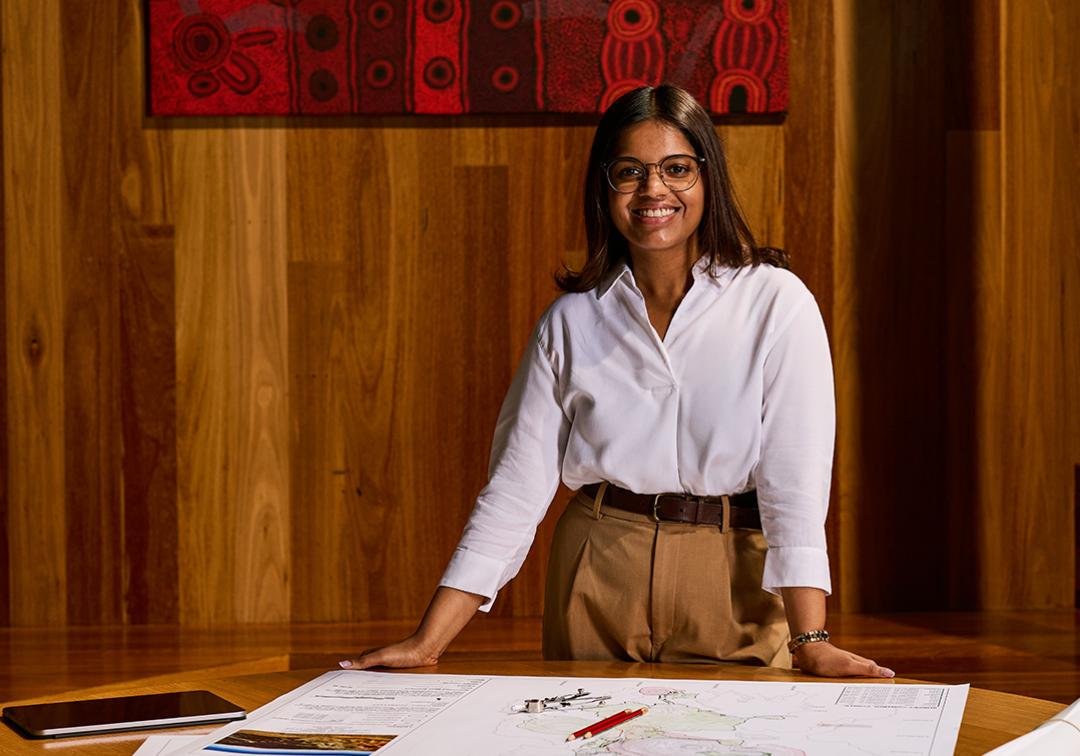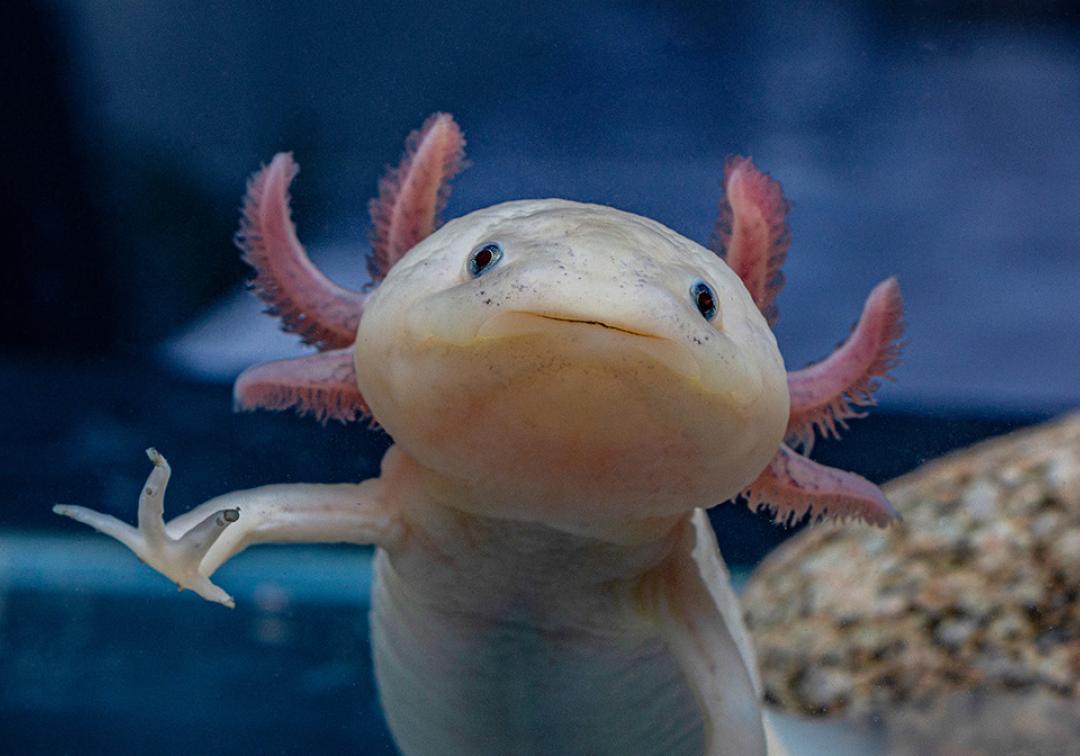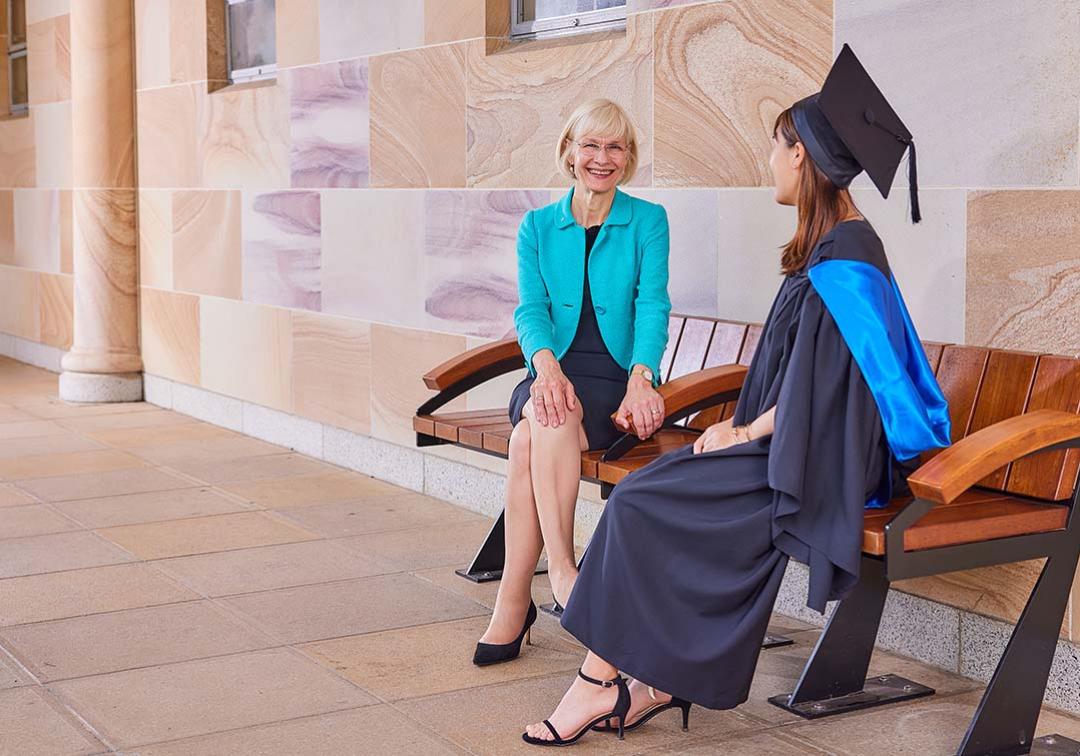
Bachelors of Engineering (Honours) / Computer Science
Overview
This dual program is your ticket to a role building the next generation of leading-edge technologies with major companies across the globe.
By studying the dual program, you'll obtain two sought-after qualifications in less time than studying the programs separately. The skills and knowledge you'll develop through the computer science program will complement your engineering expertise, and together they'll allow you to carve out a career in the high-tech industries of the future.
UQ's engineering program offers the largest choice of engineering disciplines in Queensland, with 5 core specialisations and 14 majors to choose from. The flexible curriculum will equip you to work in both established and newly emerging areas of engineering.
You'll benefit from hands-on experiences across all aspects of engineering, more study options for greater career opportunities, and direct contact with industry – your future employers – threaded throughout your degree.
Computer science combines the theoretical studies of algorithms and data structures with the practical challenges of implementing them in hardware and software systems. Through this program you'll develop the strong analytical, logical and development skills necessary to advance computing and its applications. You can specialise in cyber security, data science, machine learning, programming languages or scientific computing.
You'll graduate with qualifications that are highly valued and in demand, ready for an exciting career in leading-edge technology.
Program highlights
- Join the university with the largest range of engineering disciplines in the state.
- Combine solid technology foundations and computer science skills with an engineering speciality to supercharge your career options.
- Graduate with skills that are in high demand from some of the world's largest corporations, such as Apple, Google, Oracle and Microsoft.
Majors
Tailor your studies to suit your goals. This program offers these options:
- Aerospace Engineering
- Biomedical Engineering
- Bioprocess Engineering
- Chemical Engineering
How you'll learn
Your learning experiences are designed to best suit the learning outcomes of the courses you choose.
- Lectures
- Tutorials
- Overseas study
- Laboratory work
- Workshops
What you'll study
At UQ, degrees are called 'programs' and subjects are called 'courses'.
Career possibilities
Our programs prepare you for your first job and beyond. Depending on which major you choose, here are some of the careers you could be on your way to:
- Chemical engineer
- Civil engineer
- Cyber security analyst
- Data scientist
- Electrical engineer
- Machine learning engineer
- Mining engineer
- Software engineer
- Technical business analyst
- Mechatronic engineer
Graduate salary
Engineering (undergraduate)
compared.edu.au
Graduate salary
Computing and information systems (undergraduate)
compared.edu.au
Next steps after graduation
- 82.5% of UQ Computer and Information Systems graduates are in full-time employment (Quality Indicators for Learning and Teaching, 2019).
- All of Australia's top five emerging jobs feature automation or Artificial Intelligence (AI) skills (LinkedIn 2020 Emerging Jobs Report Australia).
- Demand for technology workers will grow by 100,000 between 2018 and 2024 (ACS Australia's Digital Pulse 2019).
Professional memberships
When you graduate, you may be eligible for memberships with the following professional organisations. Contact the organisation to find out how to become a member.
- Australian Computer Society
Program accreditation
The Bachelors of Engineering (Honours) / Computer Science is accredited by:
- Engineers Australia
Events
See all events
29 June
Queensland Biology Winter School, Year 12

1 July
International Baccalaureate Research Skills Program
Stories
See all stories
Uni life
What’s it like to study resource development (mining) as a postgraduate?
6-minute read

Study tips
5 must-study environment and sustainability courses
8-minute read
Stories
See all stories
Uni life
What’s it like to study resource development (mining) as a postgraduate?
6-minute read

UQ people
From firefighting robots to rocket science: Vennkkata’s UQ experience
5-minute read

Study tips
5 must-study environment and sustainability courses
8-minute read
Entry requirements
Prerequisites
- General English subject (Units 3 & 4, C);
- Mathematical Methods (Units 3 & 4, C);
- and one of Chemistry or Physics (Units 3 & 4, C).
Prerequisites
- General English subject (Units 3 & 4, C);
- Mathematical Methods (Units 3 & 4, C);
- and one of Chemistry or Physics (Units 3 & 4, C).
Entry score threshold
| ATAR / Rank | IB |
|---|---|
| 84 | 32 |
These are the lowest adjusted scores we made an offer to in Semester 1, 2026. Entry scores are based on the most recent Semester 1 intake and are updated in April each year. Meeting the entry score threshold doesn't guarantee admission.
Guarantee your place at UQ: If you meet our guaranteed minimum ATAR you could secure an offer for your preferred program.
English language requirements
IELTS overall 6.5; reading 6; writing 6; speaking 6; listening 6. For other English Language Proficiency Tests and Scores approved for UQ
TOEFL iBT (including Paper Edition) - Overall 87, listening 19, reading 19, writing 21 and speaking 19.
PTE Academic - Overall Score of 64 and 60 in all sub bands.
BE - A minimum overall grade of 4 plus a minimum grade of C in all macro skills.
CES - Overall 176 and 169 in all sub bands.
OET is not accepted.
There are other ways to meet the English language requirements. For some programs, additional conditions apply.
Student visas
International students who are accepted into full-time study in the Bachelors of Engineering (Honours) / Computer Science are eligible to apply for an Australian student visa (subclass 500).
There are a number of requirements you must satisfy before a visa is granted, including the Genuine Student (GS) requirement.
Entry score range
This table shows the range of entry scores for recent secondary students offered a place in the B Engineering(Hons)/BCompSc for Semester 1, 2026
| Without adjustments | With adjustments | |
|---|---|---|
| Highest | 99.95 | 99.95 |
| Median | 93.55 | 95.55 |
| Lowest | 79 | 84 |
Who you'll study with
Here's a snapshot of our student intake for this program in Semester 1, 2026:
| Applicant background | Number of students | Percentage of all students |
|---|---|---|
(A) Higher education study | <5 | <5 |
(B) Vocational Education and Training (VET) study | <5 | <5 |
(C) Work and life experience | 0 | 0% |
| (D) Recent secondary education | ||
| 57 | 89.1% |
| 0 | 0% |
| 0 | 0% |
International students | <5 | <5 |
Total | 64 | 100% |
"<5" — The number of students is less than 5.
N/A — Students not accepted in this category.
N/P — Not published. The number is hidden to protect the privacy of students in other cells.
Need help meeting the entry requirements?
Additional application information
Additional application information
Majors
Specialisations
Tailor your studies to suit your goals. This program offers these options:
Majors
Tailor your studies to suit your goals. This program offers these options:
Specialisations
Tailor your studies to suit your goals. This program offers these options:
Majors
Tailor your studies to suit your goals. This program offers these options:
Fees and Scholarships
Indicative annual fee
Approximate yearly cost of tuition (16 units). Your fees will vary according to your selected courses and study load. Fees are reviewed each year and may increase.
$7,800
2026
Approximate yearly cost of tuition (16 units). Your fees will vary according to your study load. Fees are reviewed each year and may increase.
AUD $58,056
2026
Government assistance
Financial aid
As an international student, you might be eligible for financial aid – either from your home country, or from the Australian Government.
HECS-HELP
Domestic places in the Bachelors of Engineering (Honours) / Computer Science are Commonwealth supported, as long as you meet all Commonwealth supported place eligibility requirements.
This means the cost of your education is shared between you and the Australian Government. Instead of tuition fees, Commonwealth supported students pay what are called student contribution amounts.
If you have a Commonwealth supported place, you may also be eligible for HECS-HELP. This is an Australian Government loan scheme to assist eligible students with the cost of their student contribution amounts.
Centrelink support
The Australian Government offers a number of income-support payments to eligible Australian university students.
Scholarships
You may be eligible for more than 100 scholarships, including:
How to apply
Applying online
If your senior schooling is from outside Australia, you can submit your application to UQ. Or, if you prefer, you can use an approved UQ agent near you.
The program code for the Bachelors of Engineering (Honours) / Computer Science is 2569.
How to apply for undergraduate study
If your senior schooling is from Australia
Submit your application to the Queensland Tertiary Admissions Centre if you're an international student who is currently studying:
- Australian Year 12 (in Australia or another country), or
- the International Baccalaureate in Australia.
The QTAC code for the Bachelors of Engineering (Honours) / Computer Science is 717721.
Applying through QTAC
All domestic applications should be submitted to the Queensland Tertiary Admissions Centre (QTAC).
The QTAC code for the Bachelors of Engineering (Honours) / Computer Science is 717721.
Important dates
If you’re studying Year 12 in Australia, go to the QTAC website to check the closing date for this program.
If you’re applying to UQ, the closing date for this program is:
- To commence study in semester 2 - May 31 of the year of commencement.
- To commence study in semester 1 - November 30 of the previous year.
Visa processing times vary. Apply and accept your offer as early as you can.
To learn more about UQ dates, including semester start dates, view the Academic Calendar.
Important dates
To check the closing date for this program, go to the QTAC website.
To learn more about UQ dates, including semester start dates, view the Academic Calendar.
Admissions schemes
Applying to university can be both exciting and daunting, which is why we’ve tried to make the process as simple as we can.
We have several schemes in place to improve your chances of getting a place at UQ.
Pathway options
A rank or score doesn’t determine your potential.
If you're not offered a place in your first-choice program – or if you don't meet the entry requirements – you still have a number of options.
Aboriginal and Torres Strait Islander applicants
For support with applying – or if you have any questions about university life – get in touch with our Aboriginal and Torres Strait Islander Studies (ATSIS) Unit.
Explore other programs
Express yourself. And your interest.
They say choosing a degree is hard, which is why we've made it easy. Register your interest and we'll send you everything you need to know about applying to UQ.



